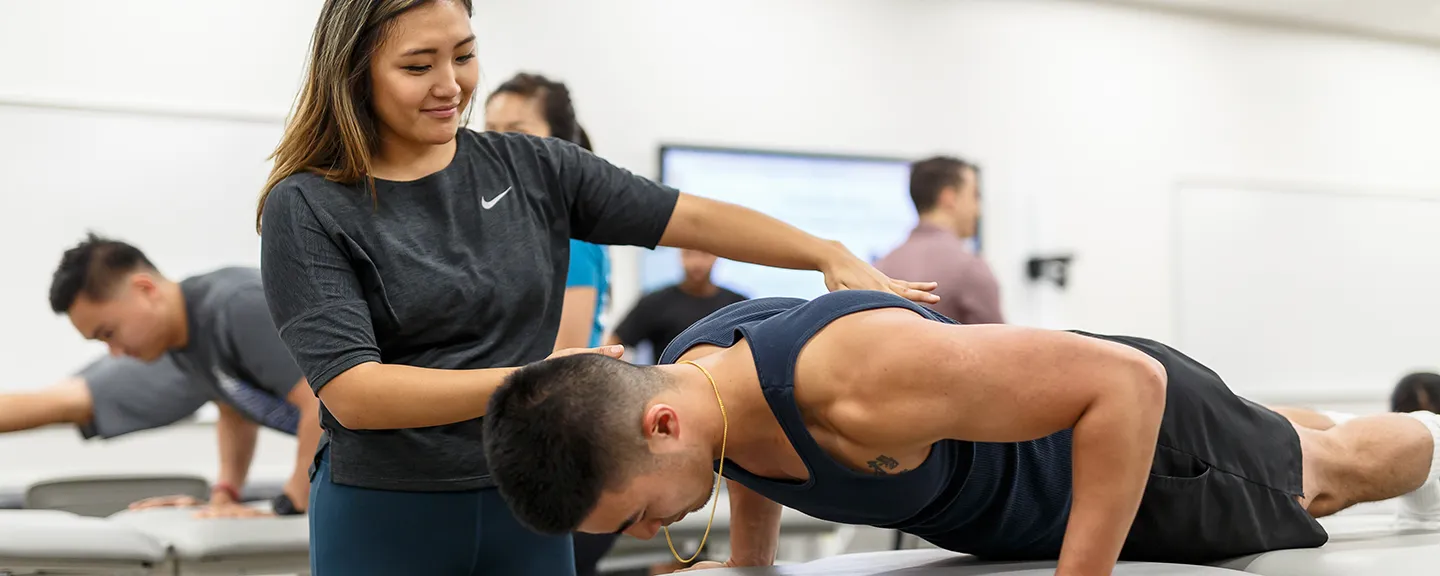- Home
- >
- APU Articles
- >
- News Article
Physical Therapy: Why Focusing on the Whole Person Matters
September 10, 2019 | Written By Stephanie Thurrott

In fact, in the last 20 years, the general understanding of health and wellness has grown to include a greater focus on all areas, including physical, mental, social, and spiritual. Here’s what you need to know if you’re interested in becoming a physical therapist and working toward a Doctor of Physical Therapy (DPT) degree.
Pain, Emotions, and Spirituality Are All Connected
With today’s advancements in technology, researchers can look at the brain and better understand how it functions. They can track how the brain controls factors like muscle strength, heart rate, and nerve function. Increasingly, it appears as though certain emotions are triggered by the same parts of the brain.
“We find that in certain instances, such as pain, the regions of the brain that are activated are the same regions activated when we have sadness, fear, and happiness,” said Derrick Sueki, PT, DPT, PhD, director of the Doctor of Physical Therapy program at Azusa Pacific University. “These types of discoveries have pushed us in the direction of thinking that pain is a form of emotional response.”
These discoveries are incredibly important for physical therapists to understand. Sueki noted that prior to these findings, the practice of physical therapy solely focused on the physical aspect of the injury and recovery. We now know it’s important to not only rehabilitate the body, but to also emphasize mental and spiritual health!
Pursuing a Degree Focused on Whole-Person Physical Therapy
Students who want to build a career in physical therapy can choose from many well-regarded programs. At Azusa Pacific University, the Doctor of Physical Therapy program focuses on physical therapy from a whole-person perspective.
Students in APU’s 36-month program learn to restore people to wellness, not just fix problems. In fact, physical therapy students at APU study:
- The science behind the human body and the way it moves
- The spiritual basis of human worth
- How to combine these elements to best evaluate and treat people with a range of conditions and injuries
APU in the Moment | Biomechanics Lab
Students work with research leaders who are looking at the effect of the mind on injury, pain, and recovery. The program’s faculty members bring deep experience in both clinical and academic arenas to the classroom.
And, as one of the few Christian universities in the nation offering a DPT program, APU offers physical therapy students a unique perspective. “At APU, we look at the physical aspect, but incorporate the mind and the spiritual soul of those we teach, with hopes that this will transfer down to those they treat as well,” Sueki said.
Interested in learning how one APU graduate is using his DPT education to help people optimize their health? Watch Matt Klingler ’16, owner of Village Fitness, explain how his studio helps build a community of people who are focused on staying healthy and building strength.